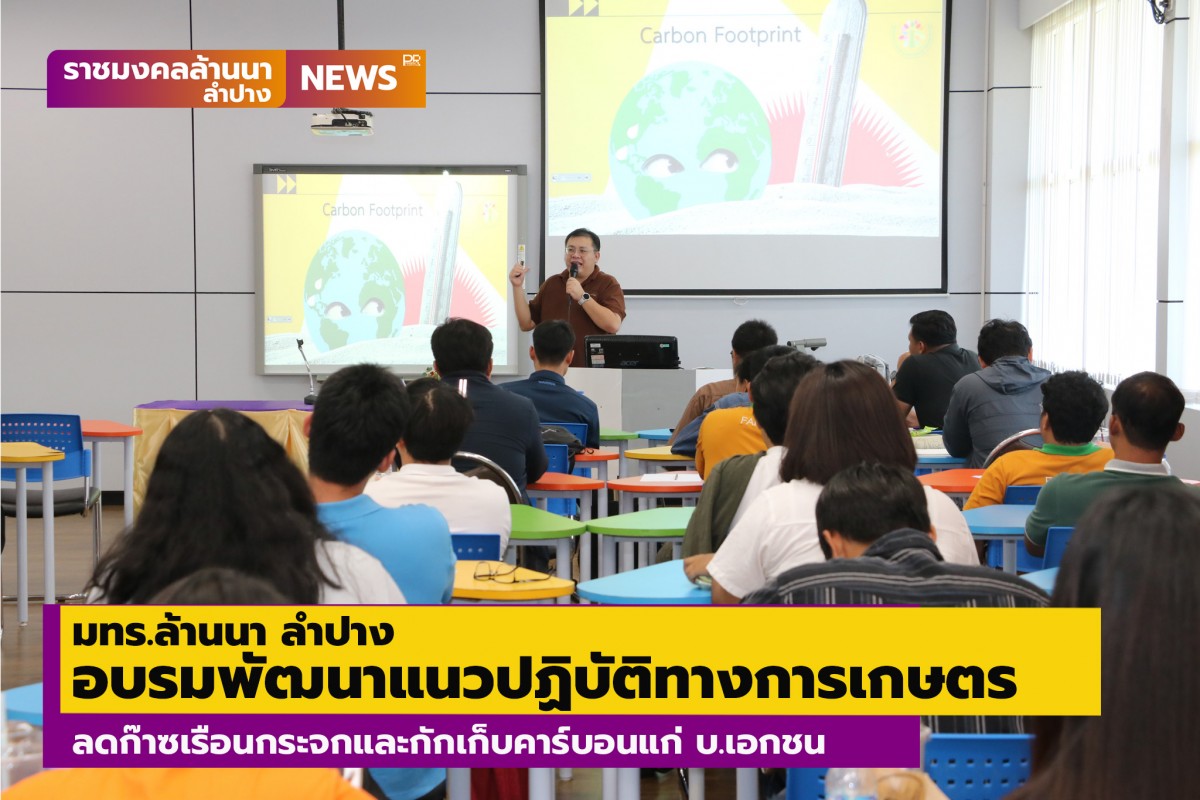In response to the global challenge of climate change, Rajamangala University of Technology Lanna (RMUTL) and the University of Phayao have continued their strong commitment to promoting sustainable energy use and environmental awareness through a series of outreach and training programs for local communities, agricultural professionals, and students across northern Thailand.
Both institutions organized several academic and practical learning workshops involving university faculty, students, industry partners, and local residents. These initiatives reflect the universities’ missions to transfer scientific knowledge and technology to society while supporting the transition toward a low-carbon economy and resilient communities.
Faculty of Science and Agricultural Technology, the Faculty of Engineering, and the Community Technology Transfer Institute—conducted a range of academic workshops and community-based learning activities designed to enhance knowledge and practical skills in energy efficiency, renewable energy, and low-carbon agricultural practices.
| Activity Title | Focus Area / Theme | Target Participants | Approx. Number of Participants | Organizer / Faculty |
|---|---|---|---|---|
| Workshop on Agricultural Practices to Reduce Greenhouse Gas Emissions and Carbon Sequestration | Climate-smart agriculture, carbon reduction, sustainable land management | Executives and staff from Charoen Pokphand Produce Co., Ltd. | 50 participants | RMUTL Lampang – Faculty of Science and Agricultural Technology |
| Training on Carbon Footprint and Carbon Credit for Agricultural Products | Carbon management, low-carbon product development, climate change mitigation | RMUTL staff, faculty, and students | 300 participants | RMUTL Lampang – Faculty of Science and Agricultural Technology |
| Renewable Energy Learning Activity for Secondary Students | Energy conservation, renewable energy education, clean energy awareness | Secondary students (Grade 7) at Sri Nan School | 40 students | University of Phayao, Faculty of Engineering (Nan Campus) |
| Community Training on Hybrid Energy Systems and Solar Coffee Drying Technology | Renewable energy application, sustainable technology for agriculture, self-reliant energy systems | Local farmers and residents in Ban Khun Tuen Noi, Omkoi District, Chiang Mai | 60 participants | RMUTL Chiang Mai – Faculty of Engineering and Community Technology Transfer Institute |
At RMUTL Lampang, Dr. Surapol Jaiwongsa and Dr. Manoch Kumpanalaisatit from the Department of Plant Science led a training workshop on low-carbon agricultural management for executives and staff of Charoen Pokphand Produce Co., Ltd. The workshop focused on strategies for greenhouse gas reduction and carbon sequestration in agricultural systems, in line with international sustainability standards such as VERRA and GOLD STANDARD.
In a related effort, RMUTL’s Faculty of Science and Agricultural Technology organized a carbon footprint and carbon credit assessment workshop in November 2024. Over 300 participants, including faculty, students, and industry representatives, learned to calculate and manage product carbon footprints (CFP) and explore opportunities for carbon credit trading in the agricultural sector. The event highlighted the growing importance of climate adaptation and sustainable farming for Thailand’s agricultural future.
Further north, the RMUTL Nan Campus and the University of Phayao’s Faculty of Engineering (Nan) jointly carried out educational outreach programs to raise awareness of renewable energy and clean energy usage among youth. One notable activity, held at Sri Nan School, engaged secondary students in hands-on learning stations that demonstrated principles of solar power, energy conservation, and renewable energy innovations, fostering an early appreciation for sustainable living.
Additionally, RMUTL engineering faculty and students extended their expertise to Ban Khun Tuen Noi community in Omkoi District, Chiang Mai, as part of a Royal Initiative Project. The team provided technical training on maintenance of hybrid energy systems (solar and mini-hydro power) and introduced solar-powered coffee drying dome technology (parabola dome) to improve agricultural productivity and reduce energy waste in local coffee processing.
These initiatives reflect RMUTL’s and the University of Phayao’s shared mission to empower local communities with practical knowledge on clean energy technologies, energy-efficient practices, and sustainable agricultural innovations. Through the integration of academic research, technology transfer, and community service, both universities continue to support Thailand’s transition toward a low-carbon and resilient society, ensuring that energy sustainability begins at the grassroots level.
Impact and Outcomes
These initiatives have successfully empowered communities and young learners to understand the vital role of clean energy and sustainable practices in combating climate change.
Key outcomes include:
- Enhanced knowledge of renewable energy systems and low-carbon agricultural models.
- Development of carbon-literate agricultural professionals capable of implementing environmentally friendly practices.
- Strengthened collaboration between universities, private sector partners, and local communities.
- Increased youth engagement in energy conservation and sustainability education.

